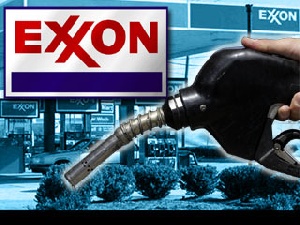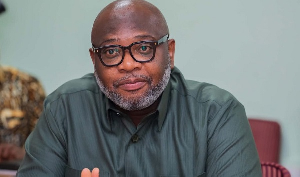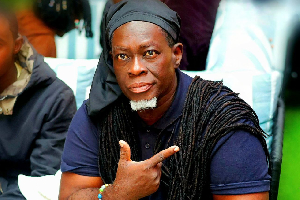On Wednesday August 18, 2010 Kosmos Energy announced that its sale and Purchase Agreement (SPA) with ExxonMobil has been terminated. No reasons were given although Kosmos has since reaffirmed its intention to stay in Ghana for the foreseeable future and participate in the development and production of the commercial quantity oil that it discovered in 2007. Ghanaians greeted this announcement with mixed reaction. While those still feeling the effects of nationalist sentiments, whipped up by some leading to the termination of the SPA, were elated that Ghana had stood up to “imperialist bullies,” many in the industry knew that Ghana missed an incredible opportunity. Given how potentially destructive this aborted SPA can become to Ghana’s investment outlook in the international community, it is imperative that Ghanaians know precisely what let to the aborted SPA.
Sources close to the inner workings of the team assigned by ExxonMobil to the Ghana project intimate that of the litany of factors that frustrated the global oil and gas giant, three things stand out.
The first surprise was that, in spite of the acclaim making the rounds within the global investment community about being investor-friendly, Ghana had become very adversarial in her relations with foreign investors over the past several months to the point of actually harassing many of these companies. ExxonMobil, therefore, could not ascertain that this environment was temporary, and was likely to change. This uncertainty made investing almost $5 billion imprudent, especially when it was contemplating making Ghana a regional operation center for Africa.
The second issue was the circumstances surrounding the World Bank/ IFC investigation of Stratoil and its relations with Modec. You would recall that a few weeks ago, it was revealed in the Ghanaian media that Modec, the contractor for the FPSO Super tanker for the Jubilee Field, made three payments over a span of about 16 months totaling $2 million to Stratoil, a British Virgin Island registered company half owned by Tsatsu Tsikata, the advisor to President Mills on energy matters.
The potential violation of Foreign Corrupt Practice Act (FCPA) that these payments represented also prompted a suspension by Multinational Insurance Guarantee Agency (MIGA) of financing on the insurance covering the FPSO. Uncertain as to the eventual findings of the investigation, which has potentially negative ramifications on the continued financing of the FPSO, ExxonMobil felt uncomfortable coming in.
The third major issue was about demands by Ghana government such as the Domestic Supply Requirement (DSR) that ExxonMobil considered to be unreasonable. At the peak of the oil production, up to 120,000 barrels per day (bpd) would be coming out of the Jubilee Field. Out of that total, Ghana was demanding that 45,000 barrels be made available to Tema Oil Refinery (TOR), and another 27,000 barrels be made available to Aboadzie Thermal Plant in addition to the 18,000 barrels or so that Ghana will be receiving for her share of the total interests. That leaves 30,000 barrels available for the remaining partners to sell in the international market. Although the 72,000 bpd request that Ghana is requiring for domestic use would be paid for, the payments would be on credit terms. ExxonMobil does sell oil and gas on credit terms, but it is a private arrangement that is never forced upon the global oil and gas producer.
Then there is the government indecision that one ExxonMobil official said the company has not encountered before. ExxonMobil informed the President of its intentions to buy Kosmos one year ago when Mills attended a United Nations event in New York. Since then about three different committees have been set to study the SPA with one of those committees making a trip to London "to conduct additional due diligence." Each time one committee has submitted its report, another one would be set up. Just as it got close to a decision, the president left on vacation with a promise to think about it while on vacation.
The official who spoke on condition of anonymity further intimated that several other issues played a contributing role. He cited instances where government officials hurled insults at ExxonMobil officials and accused them of breaking the laws of Ghana. He also cited instances of sheer disrespect including one instance by the Energy Minister who literally drove away an ExxonMobil team that arrived in Ghana to visit the FPSO. But he was quick to add that they are familiar to those because of the many different political climates in which ExxonMobil does business. In the final analysis according to the official, “it appeared Ghana did not want us doing business there.”
Experts say that is unfortunate. Many developing countries actively court these large global companies to come in and invest mindful of the employment boost that these investments bring in. Fortunately Ghana did not have to do too much to attract the likes of ExxonMobil because it had created a stable political climate and had nurtured healthy relations with the firms that came in. Lately, however, the new Mills government which assumed office in January 2009 has been continually abrasive and at time hostile to foreign corporations.
What’s more; it appears the privatization campaign that began at the turn of the century, which experts agree was the catalyst for the massive influx of foreign investment has made a U-turn and heading back to an era of nationalization of assets. Or at least that is what the GNPC is saying. Industry experts believe Kosmos’ stake would almost certainly have ended up with the Chinese since Ghana does not have the money to buy and maintain the stake.
Even if GNPC is indeed looking to buy the Kosmos stake for Ghana, it is an interesting direction because even countries such as Venezuela which nationalized her oil in 2007 are opening them up for private bidding again. National oil production in the South American country has continued to decline to the point where it could not be ignored further. Why any developing country would want to pursue that nationalization policy in these hard economic times is puzzling to one industry expert we spoke to. “It’s like someone is running away from fire and yet you want to run into it,” he said.
It is not clear if ExxonMobil will reconsider its decision to abandon the Ghana initiative. What is clear is that with up to 184 billion barrels of oil under its control globally, it would be a surprise if ExxonMobil continues to actively knock on Ghana’s doors for her 1 billion barrels of proven reserves. Companies that have poured money in Ghana may have an interest in staying to protect their investments. But with the current hostile business environment in Ghana resulting in a lowering of Standard and Poor grading, ExxonMobil’s departure may be only the beginning of a pseudo boycott of international companies of the once investment superstar destination of Africa.
getransparency@yahoo.com
General News of Tuesday, 31 August 2010
Source: stephen quartey, london. (ghana energy transparency)













